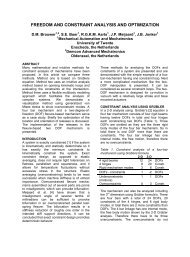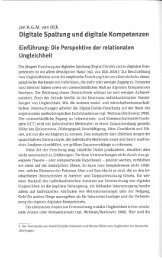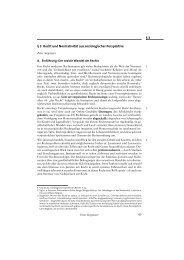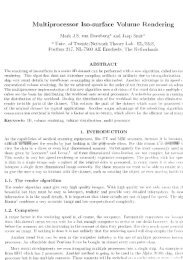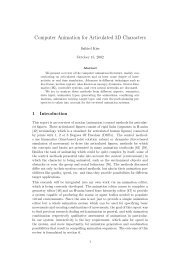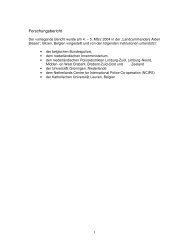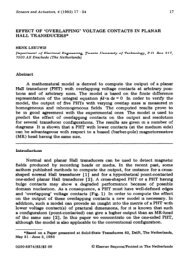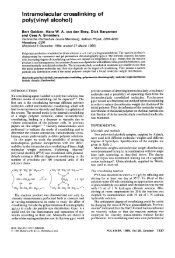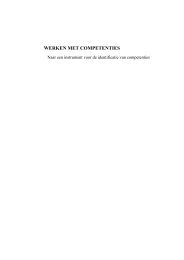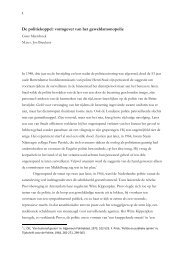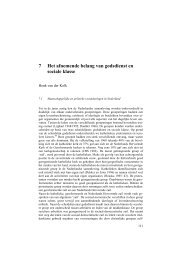Innovation and institutional change: the transition to a sustainable ...
Innovation and institutional change: the transition to a sustainable ...
Innovation and institutional change: the transition to a sustainable ...
Create successful ePaper yourself
Turn your PDF publications into a flip-book with our unique Google optimized e-Paper software.
Theoretical perspectives 37<br />
issues in industrial societies (Mol, 1995: 77). His focus is on <strong>the</strong> distribution<br />
of <strong>and</strong> shifts in power <strong>and</strong> resources, <strong>and</strong> on formal <strong>and</strong> informal rules as<br />
structuring principles. Formal rules are economic rules on for example<br />
profits, ownership, patents, liability, planning, investment decisions. Equally<br />
relevant are informal rules on trust, negotiations, cooperation, etc. Rules can<br />
<strong>change</strong> due <strong>to</strong> environmental considerations as for example environmental<br />
quality of products becomes part of <strong>the</strong> dem<strong>and</strong> structure, by extending<br />
liability with environmental liability, by taking environmental management<br />
st<strong>and</strong>ards in<strong>to</strong> account when judging good entrepreneurship (Mol, 1995: 78).<br />
The societal networks depict <strong>the</strong> relations between industry <strong>and</strong> civil society.<br />
Examples of organisations in <strong>the</strong> societal network are labour organisations,<br />
consumer organisations, environmental organisation <strong>and</strong> local citizens<br />
groups. The focus is on how interactions are shaped (direct/indirect<br />
interaction) <strong>and</strong> changing. Fur<strong>the</strong>r focus is on rules <strong>and</strong> resources applied in<br />
societal networks that primarily centre around legitimisation <strong>and</strong><br />
signification of industries’ production <strong>and</strong> products. Ecological<br />
modernisation <strong>the</strong>ory hypo<strong>the</strong>sises strategies <strong>and</strong> ideologies of<br />
environmental organisation developing <strong>to</strong>wards more direct interactions with<br />
industry <strong>and</strong> support for environmental progressive entrepreneurs, while<br />
challenging <strong>the</strong> laggards. Industry will increase negotiations <strong>and</strong> private<br />
agreements with environmental NGOs on environmental reform (Mol, 1995:<br />
83).<br />
Van Vliet (2002) analyses environment-induced <strong>change</strong> in network bound<br />
systems of provision <strong>and</strong> consumption, with case studies of electricity <strong>and</strong><br />
water provision. His focus is on social practices <strong>and</strong> <strong>the</strong> role of citizensconsumers<br />
in order <strong>to</strong> gain insight in <strong>the</strong> relationship between action <strong>and</strong><br />
structure, inspired by Giddens’ (1984) structuration <strong>the</strong>ory. Important is <strong>the</strong><br />
concept of duality of structure in which on <strong>the</strong> one h<strong>and</strong> ac<strong>to</strong>rs are<br />
constrained in <strong>the</strong>ir actions <strong>to</strong> draw on existing rules <strong>and</strong> resources <strong>and</strong><br />
structures are thus media enabling human actions, <strong>and</strong> on <strong>the</strong> o<strong>the</strong>r <strong>the</strong>se<br />
structures are confirmed <strong>and</strong> reinforced by human action, <strong>and</strong> are thus also<br />
outcome of it (Van Vliet, 2002: 12). These ideas have been conceptualised<br />
earlier by Spaargaren as shown in Figure 2.3.



